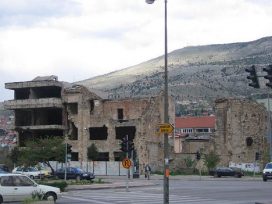Gender in Catholic Poland: Beyond ideology?
Marcin Nowak in conversation with Tomasz Sawczuk
The Roman Catholic Church in Poland is not merely scaremongering about gender: it wishes to seriously reflect upon the topic, insists Marcin Nowak. And despite the potential of every idea, including liberalism and Christianity, to become an ideology, serious dialogue will follow.



